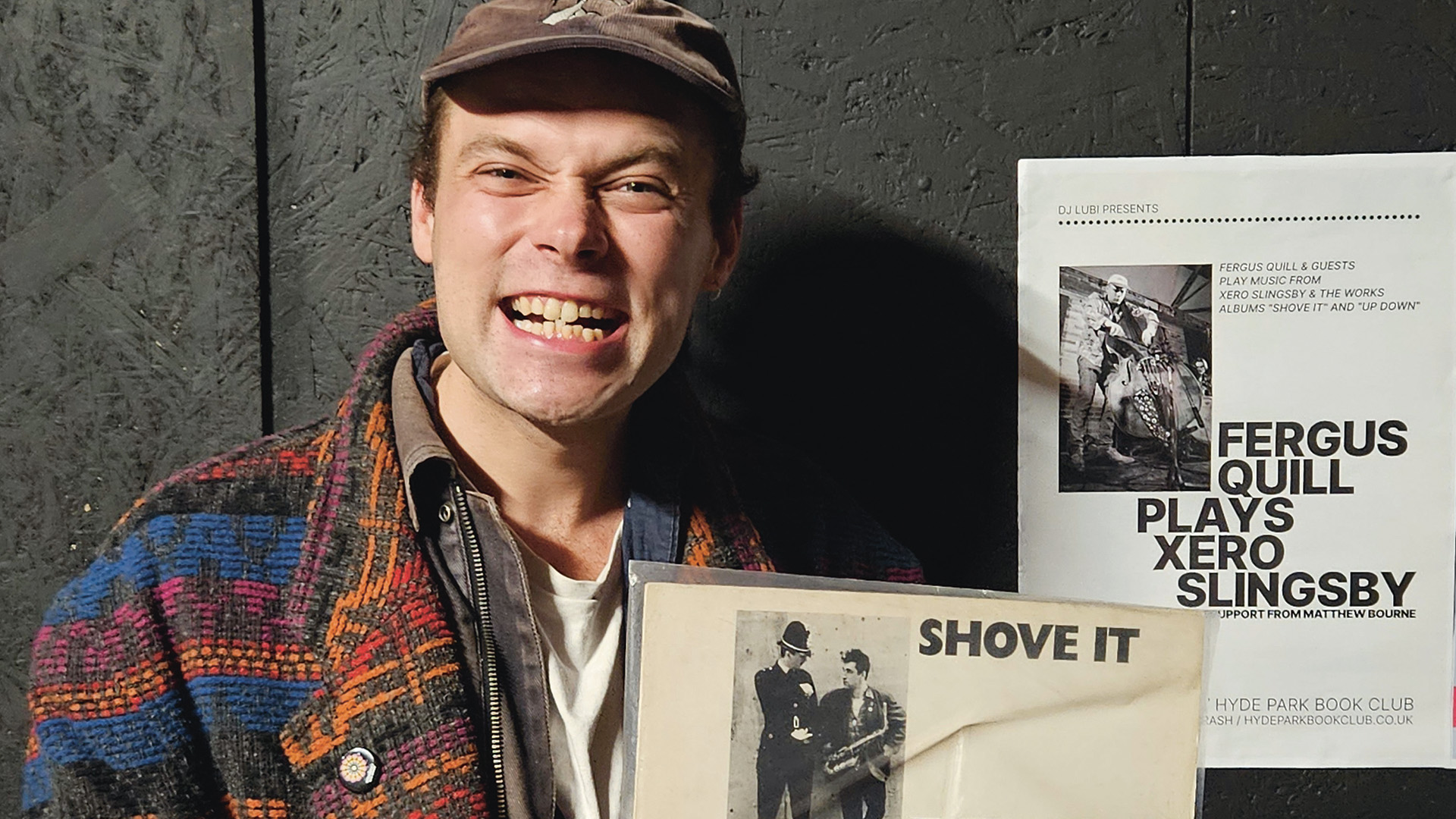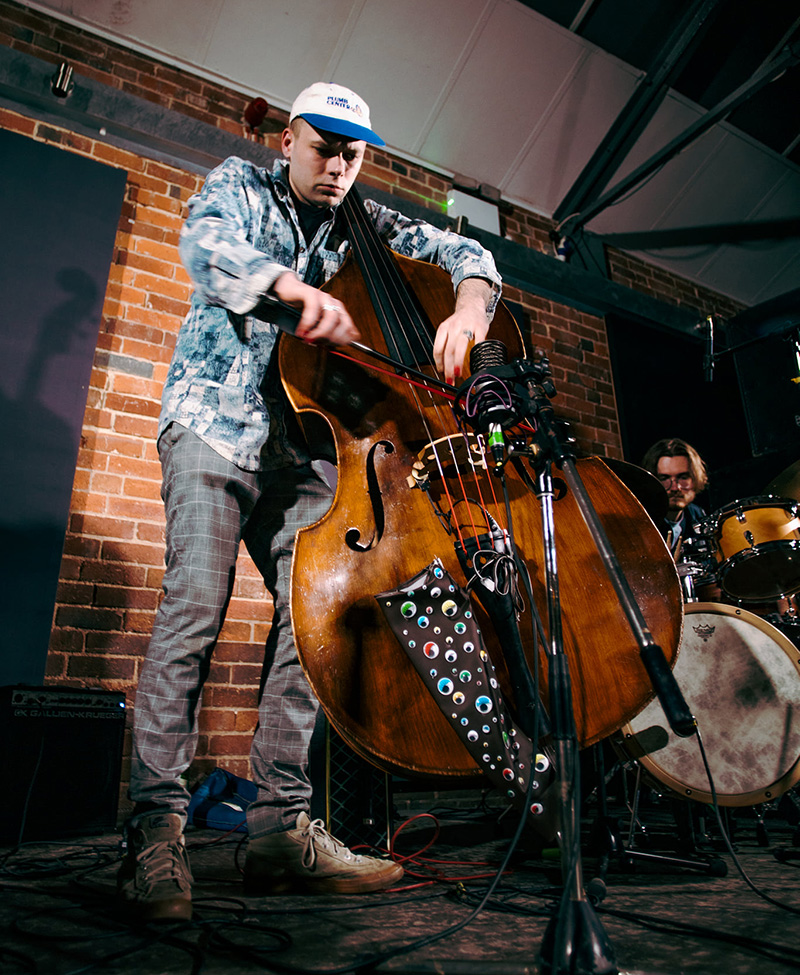Sonny Rollins, known as the ‘Saxophone Colossus’, famously practised for hours on the Williamsburg Bridge in New York, vying to be heard over roadworks and urban din. On the streets of Leeds in the 1980s a gifted sax player called Matthew Coe attempted to hone his craft in a similar fashion and found his performances routinely interrupted by the police, eventually clocking up over 40 arrests and court appearances for illegal busking.
Coe, known by his stage name Xero Slingsby, became a local hero and an advocate for buskers’ rights, and is finally beginning to earn his place as an emblem of the rebellious spirit of British jazz.
Change a Big Issue vendor’s life this Christmas by purchasing a Winter Support Kit. You’ll receive four copies of the magazine and create a brighter future for our vendors through Christmas and beyond.
Xero Slingsby’s music has drawn comparison to Hendrix, Coltrane, Sidney Bechet and Boredoms. He cut two albums with his band, The Works: 1985’s Shove It (featuring the anti-Thatcher anthem of the same name, perhaps his best-known track) and 1986’s Up Down. Both records are smart, punchy and confrontational, drawing influence from post punk and free jazz with an anarchic, political edge. The band played frequently around the UK and Europe, although Slingsby still busked regularly, explaining in a short film for Yorkshire TV in 1982: “It’s good for music in general. If it’s on the street, then people can see it and they can participate.” Tragically, on the precipice of mainstream success, Slingsby died of a brain tumour at just 30 years of age.
His music is beginning to resurface. Last year a crowdfunded independent documentary, Shove It – the Xero Slingsby Story premiered at the Leeds International Film Festival, and this November saw fellow Leeds musician and bandleader Fergus Quill release a tribute LP called ¡Up Yours! Fergus Quill Plays Xero Slingsby. The album, a result of Quill’s fascination with Slingsby and a serendipitous encounter with a former member of The Works, was created with the support of Slingsby’s widow Sally Coe, who provided some of his original homemade instruments for the project (including the ‘Bikepumpaphone’ and the ‘Bikewheelatron’).
“In jazz and improvised music a composer can be said to ‘enter the canon’ when other – usually younger – musicians start to play their music,” Quill tells me. “Interestingly, nobody has recorded any of Xero’s music which is a real shame as his tunes are frankly amazing, and are definitely deserving of a wider audience.










